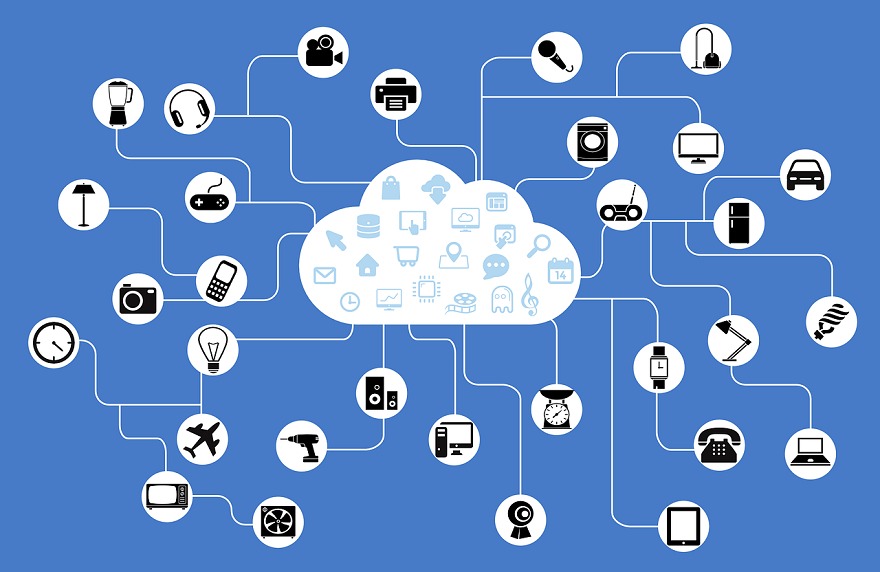Home » IOT: BLESSING OR CURSE

We are living in an age of technological revolution. It has been observed that the cyber and physical environments are so inextricably linked that we cannot imagine our lives without the internet. No detail has been overlooked by technology. It has elevated the user experience in a built environment to new heights.
 By combining art and technology, architects’ ability to visualise a space in order to improve user experience is multiplied many folds. From the basket of technological innovations available to us today the most revolutionary one is the IoT which has completely transformed our living styles. Today, IoT has spread into numerous domains across numerous industries. By improving user experience, it is making a significant impact on building construction, operation, and maintenance.
By combining art and technology, architects’ ability to visualise a space in order to improve user experience is multiplied many folds. From the basket of technological innovations available to us today the most revolutionary one is the IoT which has completely transformed our living styles. Today, IoT has spread into numerous domains across numerous industries. By improving user experience, it is making a significant impact on building construction, operation, and maintenance.
We can now gain access to our offices using bar codes and QR codes. We have sensor-based lighting, self-adjusting temperature systems, and security alerts that notify the central system of someone entering the building or leaving doors open. We have a sophisticated communication system that monitors water usage and alerts facilities to water leaks. The entire system is based on a refined automation system in which every aspect of the building’s operation is networked, beginning with access to lighting, intercoms, fire safety, temperature controls, energy use, water use, ventilation, and so on.
These smart buildings are aware of the specific needs of their users in order to make them more comfortable and productive. These so-called smart buildings are aware of their users’ needs, making them more comfortable and productive. The Internet of Things transforms buildings from mere ‘containers’ to places that actually help people become more successful. These environmentally conscious, cognitive buildings are already in the works, incorporating cutting-edge solutions and the Internet of Things as the catalyst for transformation.
The true intelligence of a building, however, is not solely based on the seamless integration of communication between sensors and devices. Future buildings are also being designed with the user’s mental and emotional well-being in mind. To address this issue, architects and engineers would need to delve into the world of neuroscience in order to comprehend the various types of responses of our brain to various types of environments. Schools should help us learn more effectively, and hospitals should help us heal faster.
To achieve smart buildings in the future, architects will need to focus on infrastructure that supports both technology and human behaviour. According to research, smart buildings can ultimately lead to energy efficiency and lower operation and maintenance costs, allowing us to move up the ladder towards achieving the Sustainable Development Goals. Are we truly prepared to handle such large amounts of data as we race up the SDG ladder? When all of our information is shared by a third party, it can endanger our personal security and safety.
We need to handle the indulgence of technology in our lives intelligently so that this blessing does not turn into a curse as human mind is above all.
Ar. Aditi Arora
School of Architecture and Planning
Lingayas Vidyapeeth
RECENT POSTS
CATEGORIES
TAGS
Agriculture Agriculture future AI Architecture artificial intelligence Bachelor of Commerce BA English BA Psychology BTech AIML BTech CSE BTech cybersecurity BTech Engineering Business management career Career-Specific Education career guide career option career scope Civil engineering commerce and management Computer Science Computer science engineering Data science degree education Engineering Engineering students English Literature english program Fashion Design Fashion design course Higher Education Journalism journalism and mass communication law Law career Machine Learning mathematics MBA MBA specialization Mechanical Engineering Pharmacy Psychology Research and Development students
Nachauli, Jasana Road, Faridabad, Haryana
Address: C-72, Second Floor, Shivalik, Near Malviya Nagar,
Above HDFC Bank, New Delhi 110017
Landline No. - 011-46570515 / 45138169 / 41755703
Mobile No. - +91-7303152412 / +91-7303152420 / +91-9311321952
Toll Free: 1800-120-4613
Mobile : 8447744303 | 8447744304 | 8447744306 | 8447744309
8700003974 | 8700003411 | 8700003749
Copyrights © 1998 - 2026 Lingaya's Vidyapeeth (Deemed To Be University). All rights reserved.
LV only conducts physical/online verification of any document related to examination on the following email id:
It is important to note that the following email IDs and domains are fraudulent and do not belong to our university.